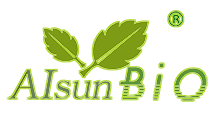The use of plastic bags in Thailand has decreased by more than 148,000 tons in about three years. In 2018, the Pollution Control Department (PCD), in partnership with the Environmental Improvement Department (EQPD), launched a campaign to reduce the use of single-use plastic and plastic shopping bags.
The campaign aims to reduce the use of plastic bags by 43% by 2021. According to an analysis by the Regional Marine Plastic Litter Knowledge Centre, by the end of the year, the campaign had reduced the use of plastic bags by 148,699 tons.
According to Pinsak Suraswadi, Director General of the Pollution Control Department (PCD), the roadmap for 2018-2030 has a campaign to reduce the use of plastic bags, which has two main goals: to replace plastic bags with environmentally friendly containers, and to reduce the amount of plastic waste to 100% by 2027.
Pinsak said the first campaign focused on buying plastic bags and Styrofoam food containers from markets, malls and shops. This reduced the use of plastic bags by 9,824 tons. The second campaign targeted 90 large department stores, convenience stores and supermarkets, reducing the use of plastic bags by 81,531 tons.
The success of these campaigns prompted the PCD to develop a second phase plan from 2022 to 2027, which was approved by the National Environmental Council and approved by the Cabinet on February 7th. The second phase has three main goals: reduce plastic waste in landfills by 100%, recycle plastic waste by 100%, and prevent plastic waste from polluting the ocean by 50%.
According to the Thailand Development Research Institute (TDRI), in 2020, Thailand ranked 10th in the world for plastic waste landfill. The most common plastic items in Thailand’s waterways and oceans are plastic bags, straws, and food containers.
The government banned single-use plastic bags in 2018, but the campaign was affected by the country’s lockdown to contain Covid-19, which led to a surge in food delivery services and increased use of plastic bags.
Thai authorities have taken other steps to try to reduce the amount of plastic waste in the country. It was reported last month that the Thai Ministry of Finance, in collaboration with the Ministry of Industry, announced a new plan to reduce corporate income tax by 25% for companies buying biodegradable plastic products between 2022 and 2024.
The move is meant to encourage companies to switch and cut losses in the process. Industry Minister Suriya Jungrungreangkit said the plan also supports the government’s Bio, Circular and Green (BCG) economic model. This administration has placed the BCG on the national agenda.
The industry’s drive towards biodegradable products has also led to the development of manufacturing technologies that add value to products and minimize environmental impact.
The government has also set a goal of making Thailand an ASEAN biocenter by 2027, and the development of biodegradable plastic materials is part of the plan using biochemical and biopharmaceutical technologies.
Thaiger Talk is our new tiger community where you can join in on everything that’s happening in Thailand.
Please note that articles are not posted to the forum immediately and may take up to 20 minutes to appear. Click for more information and a guide to Thaiger Talk.
Post time: Feb-17-2023
